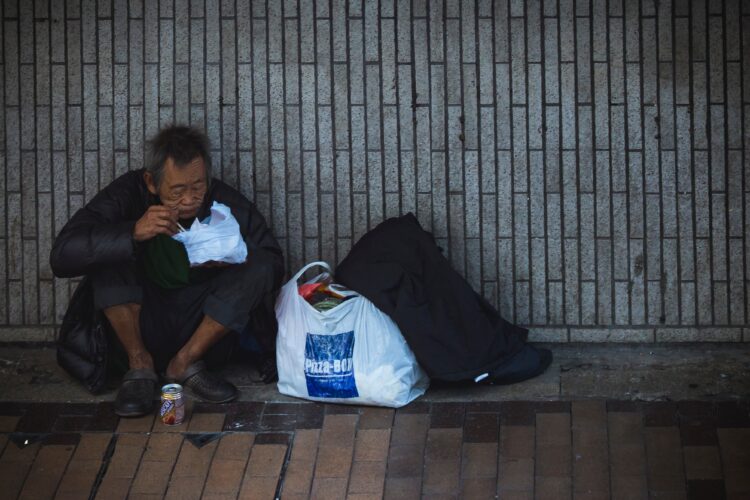By Tony O’Riley-
Homelessness has been on the rise during the coronavirus crisis as job losses and barriers to sofa-surfing during lockdown pushes people to the brink, charities have warned.
Thousands of rough sleepers who have been housed during the pandemic could be forced to return to the streets at the end of the month when contracts housing the homeless runs out.
New research from the Crisis charity reveals more than half of frontline services have seen a rise in homelessness, with nearly three-quarters saying demand for their services had increased since the start of the pandemic.
The study surveyed 150 charities and organisations supporting homeless people, highlights “huge pressure” on people already struggling with low wages and high rent.
Six in 10 respondents said they had seen an increase in people who had recently lost their job seeking support, while a similar proportion had seen a rise in people who were previously sofa-surfing now requiring help, often because lockdown had prevented them from being able to continue staying with friends or family.
The organisations also reported a dramatic rise in people seeking help for basics like food and money as well as feelings of loneliness and isolation
Jon Sparkes, chief executive of Crisis, said: “At this very minute tens of thousands of people across Britain are struggling against a rising tide of job insecurity and high rents, all of which threaten to push them into homelessness. This isn’t right especially when, given the progress we’ve made so far, we know that ending homelessness is within our grasp.”
New government figures show local authorities have accommodated 14,610 homeless people in hotels and other forms of housing during the pandemic, which Crisis praised as “extraordinary action” to get everyone into safe accommodation.
Director of policy Matt Downie welcomed a government announcement last week that 3,000 units of accommodation would be made available over the next 12 months, but said there was a “clear disparity between what is needed and what the government has planned”.
David Renard, housing spokesperson for the Local Government Association (LGA), which represents councils in England, said that following the “monumental effort” to house large numbers of homeless people at the start of the pandemic, councils were now experiencing an urgent need for more accommodation as people lose their homes during the crisis.
“While the recently announced funding for councils to support rough sleepers is positive, we still need clarity from government on what additional practical support will be available to councils to help them move people out of hotels and temporary accommodation and into housing,” he said.
“Allowing councils to be able to keep 100 per cent of receipts from Right to Buy sales and extending the deadline to spend the money to at least five years, will also allow councils to get on with the job of building the new homes that people in their areas desperately need.”
New government figures show local authorities have accommodated 14,610 homeless people in hotels and other forms of housing during the pandemic, which Crisis praised as “extraordinary action” to get everyone into safe accommodation.
Director of policy Matt Downie welcomed a government announcement last week that 3,000 units of accommodation would be made available over the next 12 months, but said there was a “clear disparity between what is needed and what the government has planned”.
David Renard, housing spokesperson for the Local Government Association (LGA), which represents councils in England, said that following the “monumental effort” to house large numbers of homeless people at the start of the pandemic, councils were now experiencing an urgent need for more accommodation as people lose their homes during the crisis.
“While the recently announced funding for councils to support rough sleepers is positive, we still need clarity from government on what additional practical support will be available to councils to help them move people out of hotels and temporary accommodation and into housing,” he said.
“Allowing councils to be able to keep 100 per cent of receipts from Right to Buy sales and extending the deadline to spend the money to at least five years, will also allow councils to get on with the job of building the new homes that people in their areas desperately need.”

